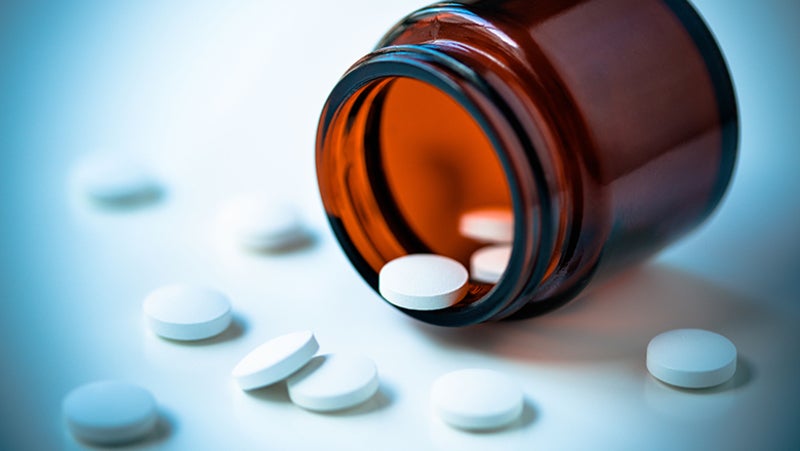
A systematic review by King’s College London, King’s College Hospital and Imperial College London has revealed that frequent use of aspirin to prevent heart attack and strokes could increase the risk of major bleeding episodes by 50%.
The study analysed the outcomes from 13 clinical trials involving a total of more than 164,000 participants, according to Reuters. The participants did not have a known history of cardiovascular diseases.

Discover B2B Marketing That Performs
Combine business intelligence and editorial excellence to reach engaged professionals across 36 leading media platforms.
During the studies, the team assessed the overall effects of regular intake of aspirin on patients. They also performed a follow-up after 12 months.
Findings showed that taking aspirin could lower the risk of cardiovascular events by 11%, while it was associated with 43% of major bleeding events, compared to patients who did not take the medicine.
In addition, around 250 patients required treatment with aspirin for five years to prevent a single heart attack, stroke or cardiovascular death.
King’s College London cardiology academic clinical fellow Sean Zheng said: “This study demonstrates that there is insufficient evidence to recommend routine aspirin use in the prevention of heart attacks, strokes and cardiovascular deaths in people without cardiovascular disease.

US Tariffs are shifting - will you react or anticipate?
Don’t let policy changes catch you off guard. Stay proactive with real-time data and expert analysis.
By GlobalData“This study shows that while cardiovascular events may be reduced in these patients, these benefits are matched by an increased risk of major bleeding events.”
In September last year, Monash University in Australia announced initial results from the ASPREE clinical trial investigating the benefits and risks of low, daily doses of aspirin in healthy people aged over 70 years.
Being conducted in a total of 19,000 subjects in the US and Australia, the trial showed that 100mg aspirin did not significantly decrease the risk of a first heart attack or stroke.
However, taking the drug resulted in a 3.8% increase in the number of serious bleeding cases among participants taking aspirin, compared to 2.8% in the placebo arm.




